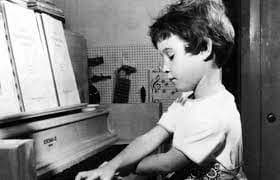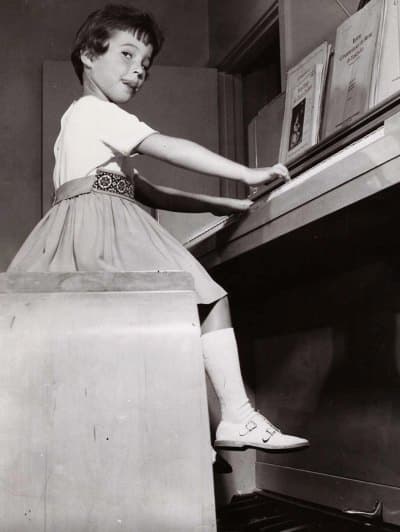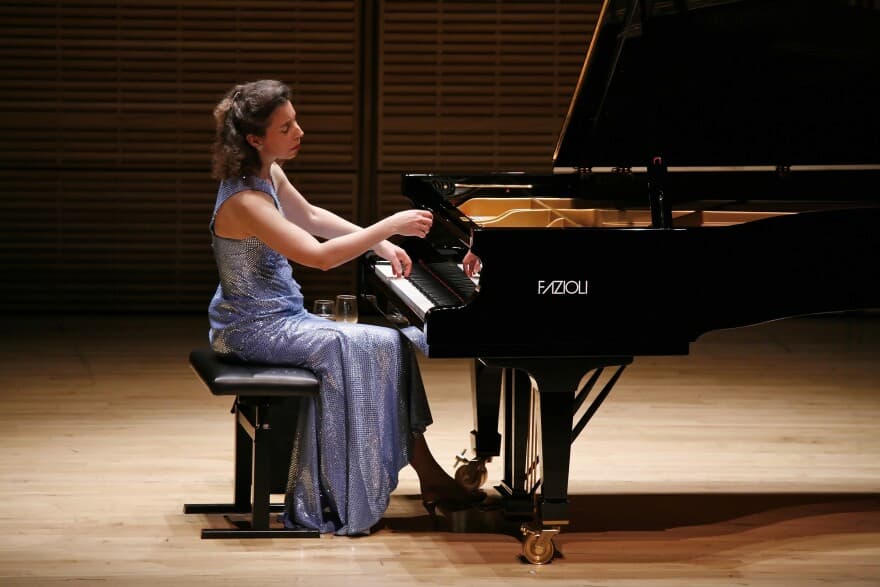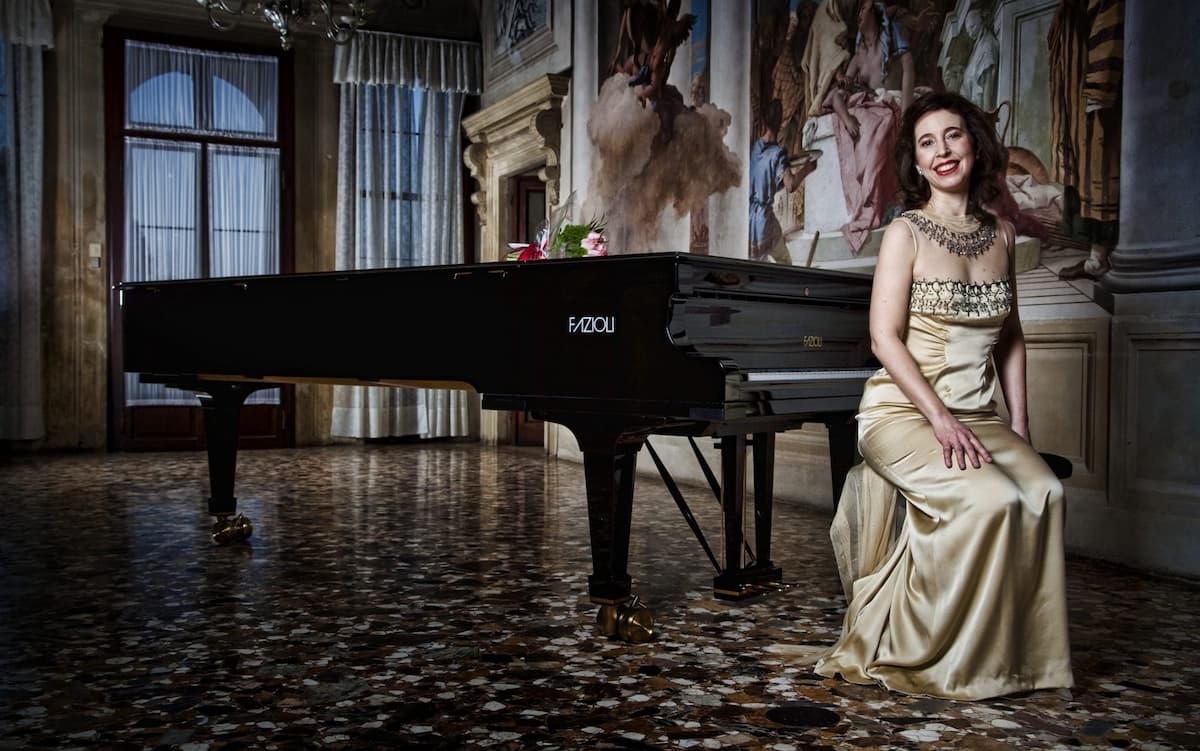Pianist Angela Hewitt is probably best known for her cycle of Bach recordings, a project started in 1994 and finished in 2005. To complete her mission, she added a recording of Bach’s The Art of the Fugue in 2014.
Angela Hewitt’s Musical Father

The young Angela Hewitt
Hewitt was born in Ottawa, Ontario, on 26 July 1958, daughter of Yorkshire-born Godfrey Hewitt. He was the choirmaster and organist at Christ Church Cathedral in Ottawa, and according to his daughter, “he was a great Bach player. I remember hearing him play those organ works, and the wonderful clarity that he brought to them—the joy, the sense of dance, the rhythm, and all the things that you need to play Bach well.”
Angela Hewitt Plays Bach’s Prelude and Fugue in B minor BWV 893
First Instruction
Hewitt began her piano studies at the age of three with her mother. “She was a wonderful musician,” explains Hewitt. “She had gone to study the organ with my father but she was a pianist in her own right and a choir director, too.”
According to Angela Hewitt, her mother “was a lovely and natural musician. Everything she did was always musical. And she was especially very good with children. When she gave me daily lessons, evidently I asked for them. I liked the lessons so much when she started teaching me on a real piano at the age of 3.”
J.S. Bach: Piano Concerto in D Minor, BWV 1052 (Angela Hewitt, piano; CBC Vancouver Orchestra; Mario Bernardi, cond.)
Other Interests

Angela Hewitt at age 4 © angelahewitt.com
However, Hewitt had a well-rounded musical education as she also studied the violin with Walter Prystawski, recorder with Wolfgang Grunsky, and ballet with Nesta Toumine in Ottawa. Eventually, however, she left the violin behind and focused on the piano.
As she explained in an interview, “At one point, I did play them side-by-side. When playing Bach’s keyboard music, you sometimes have to think about the accentuation and articulation you would get from bowing a stringed instrument. So I am happy to have studied the violin.”
Angela Hewitt Plays Bach’s Prelude and Fugue in G Major, BWV 884
Childhood Memories
Hewitt related a lovely anecdote about her earliest training in classical music. “When I was a kid,” she explained in an interview, “my mother would tie up the gates of my play area with loads of knots because I was always escaping and running down the road. I’d spend the whole day undoing those knots so that I could run down the street. Maybe that’s why I like doing a lot of Bach fugues—they’re very complicated pieces with four or five different voices at once. I like taking those pieces and making them sound easy. It’s just in my nature.”
Spirituality

© Richard Termine
Then and now, church music and the compositions of Bach have always been at the center of Hewitt’s aesthetic. For her, “the compositions of Bach are a great expression of faith. Perhaps more than any other composer, people turn to his music in times of trouble when they need comfort. Bach’s music conveys a message of great joy and hope.”
Angela Hewitt Plays Bach’s Prelude and Fugue in B Major, BWV 892
Hewitt and Bach
Hewitt’s relationship with Bach has developed and deepened over the years. “Bach never wrote a note, sacred or secular, that wasn’t to the glory of God. So when you play Bach it gives a sense of purpose behind the music that one might not otherwise have.” To Hewitt, “you don’t play Bach in a trivial way. It’s not expressive in a nyah-nyah way. It is pure sound, pure expression.” Hewitt strongly believes that you can perform Bach properly without being a believer, “but you have to have a sense that for Bach that was the case. The strength of purpose has to be there; the fact that he looked forward to eternal life.”
Bach on modern Instruments

Angela Hewitt
In the same sense, Hewitt never apologized about playing Bach on the piano. “I knew that the pieces were written for the harpsichord but the piano was my instrument. And after all, Bach is the greatest composer of all time.” Hewitt performed her first full-length recital at the age of nine at The Royal Conservatory of Music in Toronto, where she studied from 1964 to 1973 with Earle Moss and Myrtle Guerrero. She then went on to be a student of French pianist Jean-Paul Sevilla at the University of Ottawa.
For more of the best in classical music, sign up for our E-Newsletter
